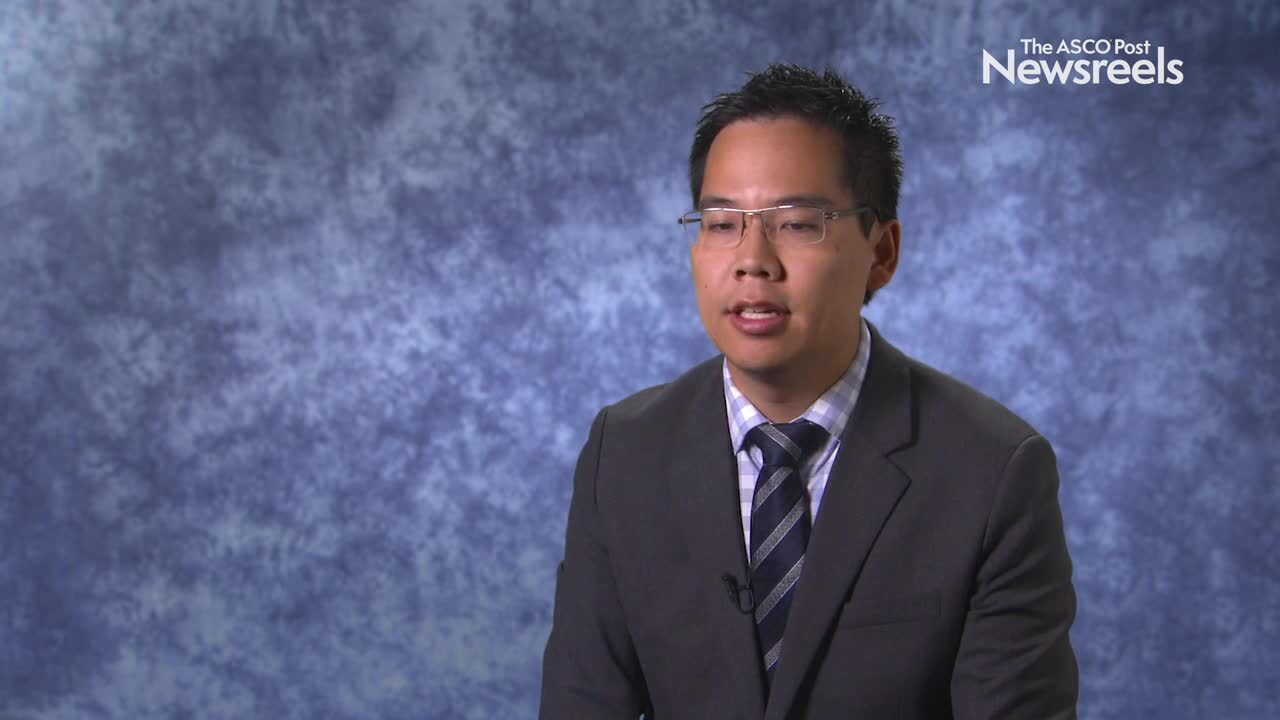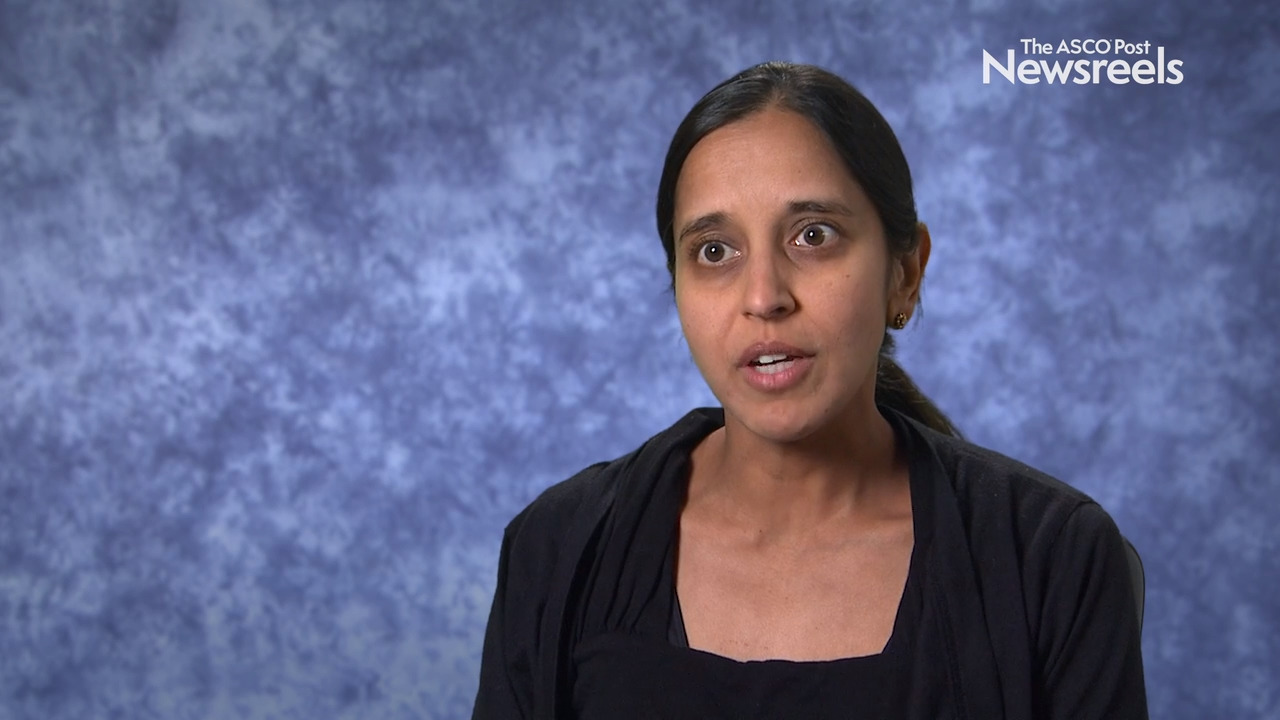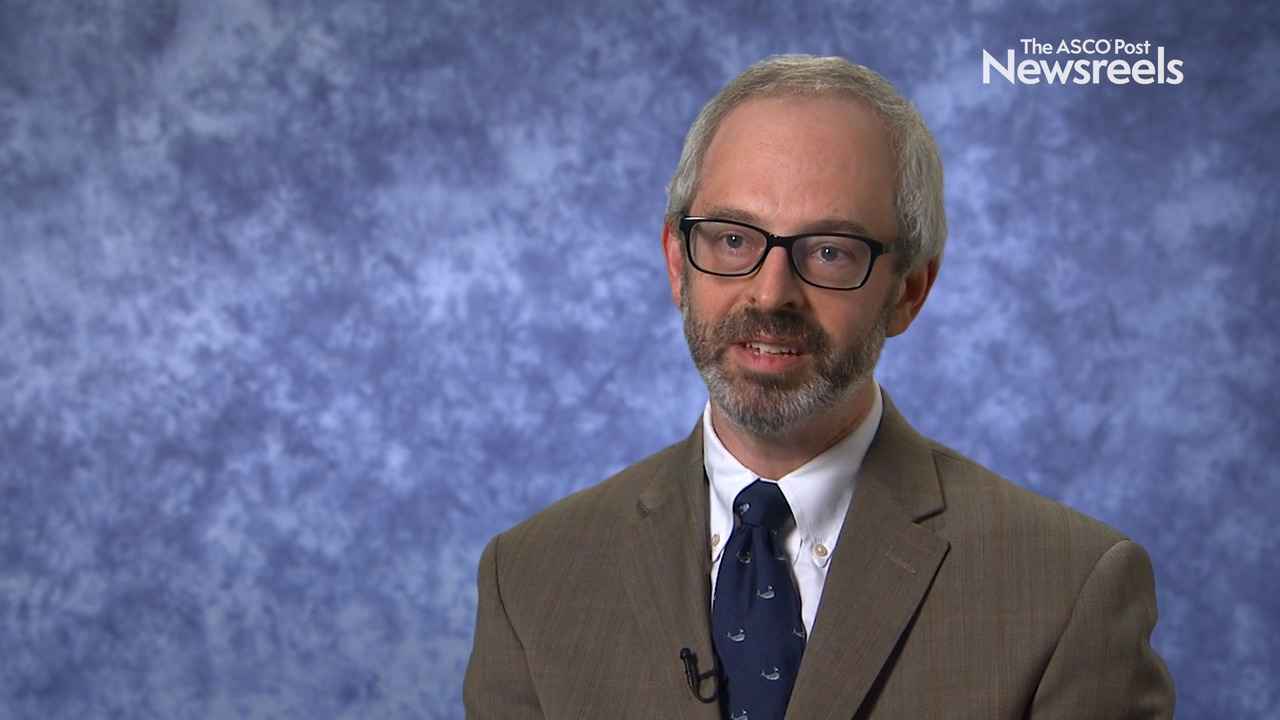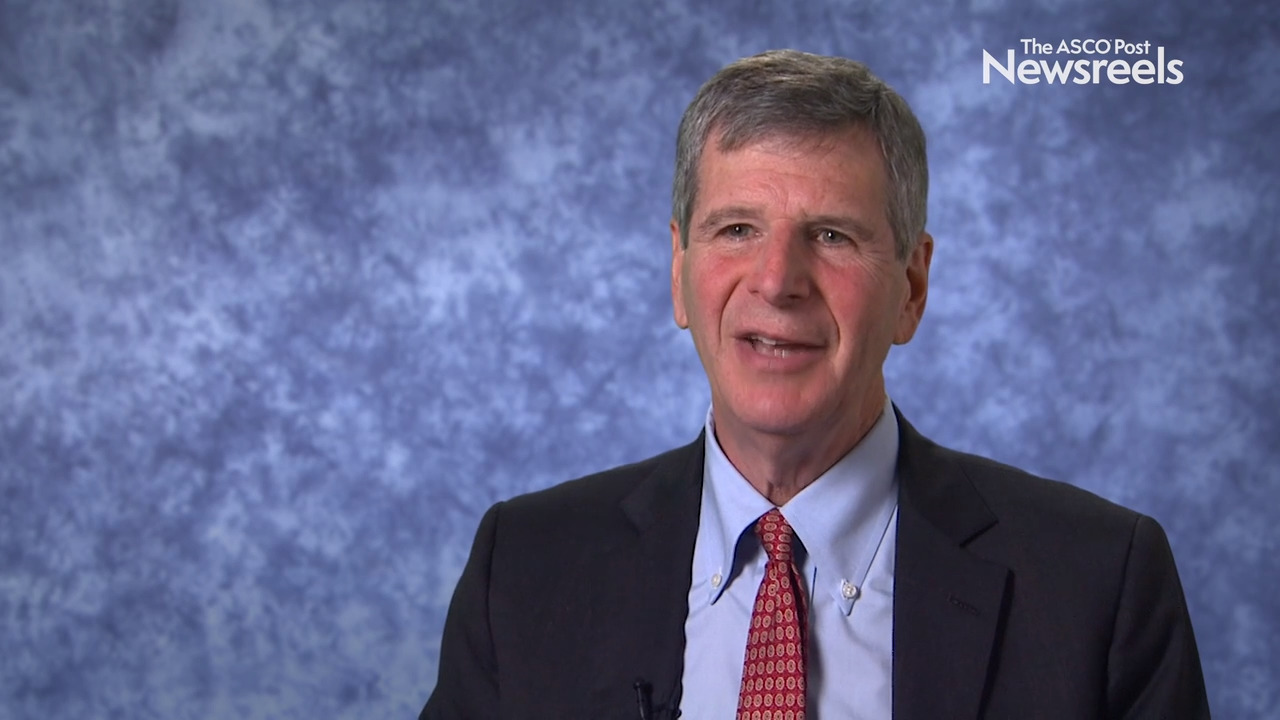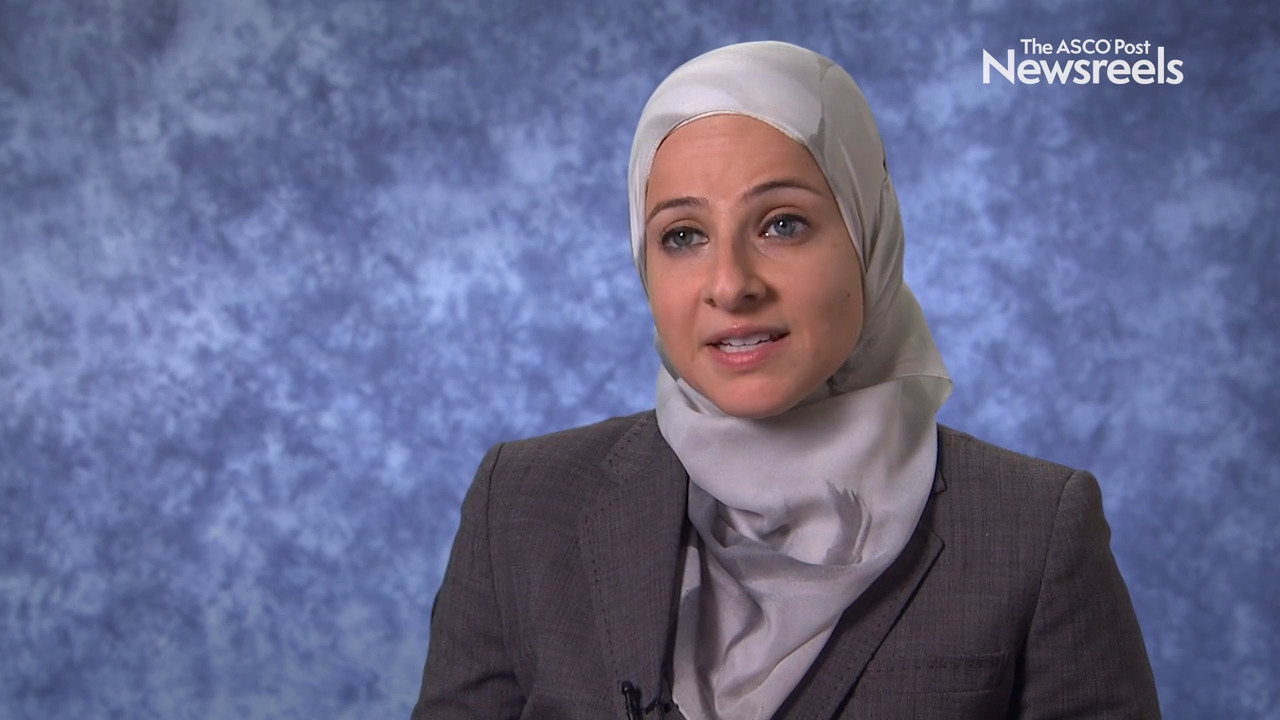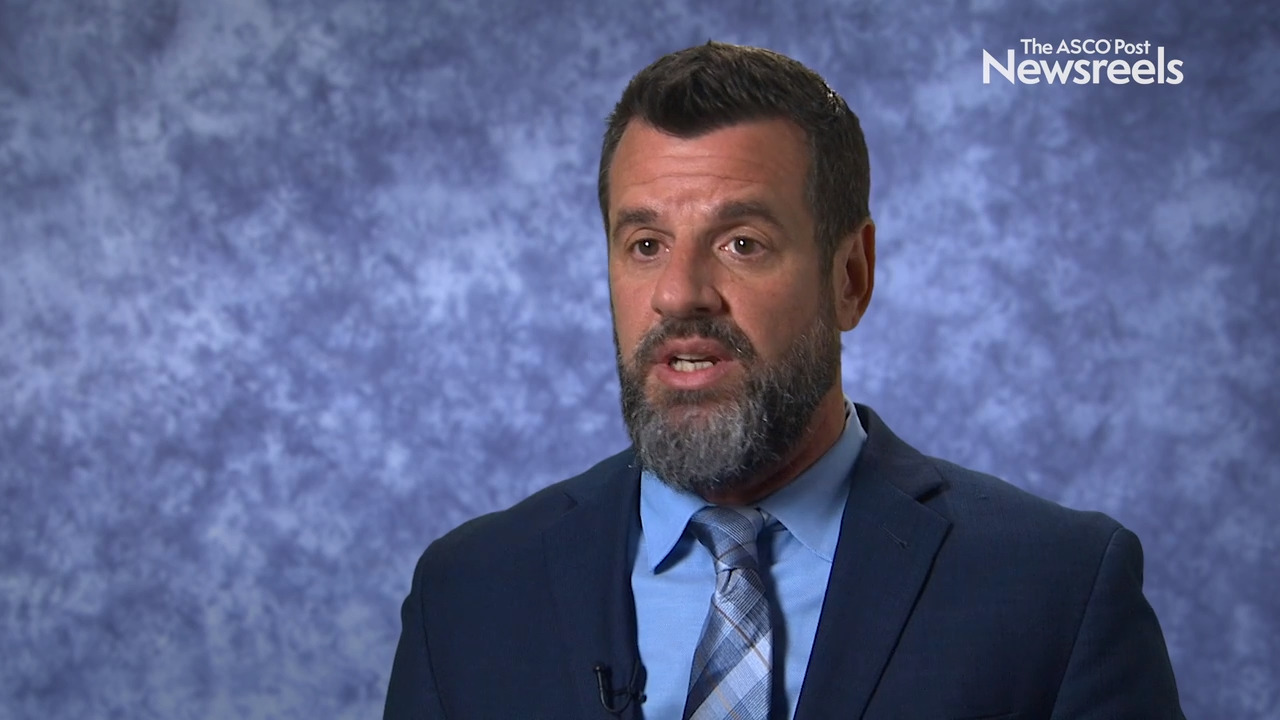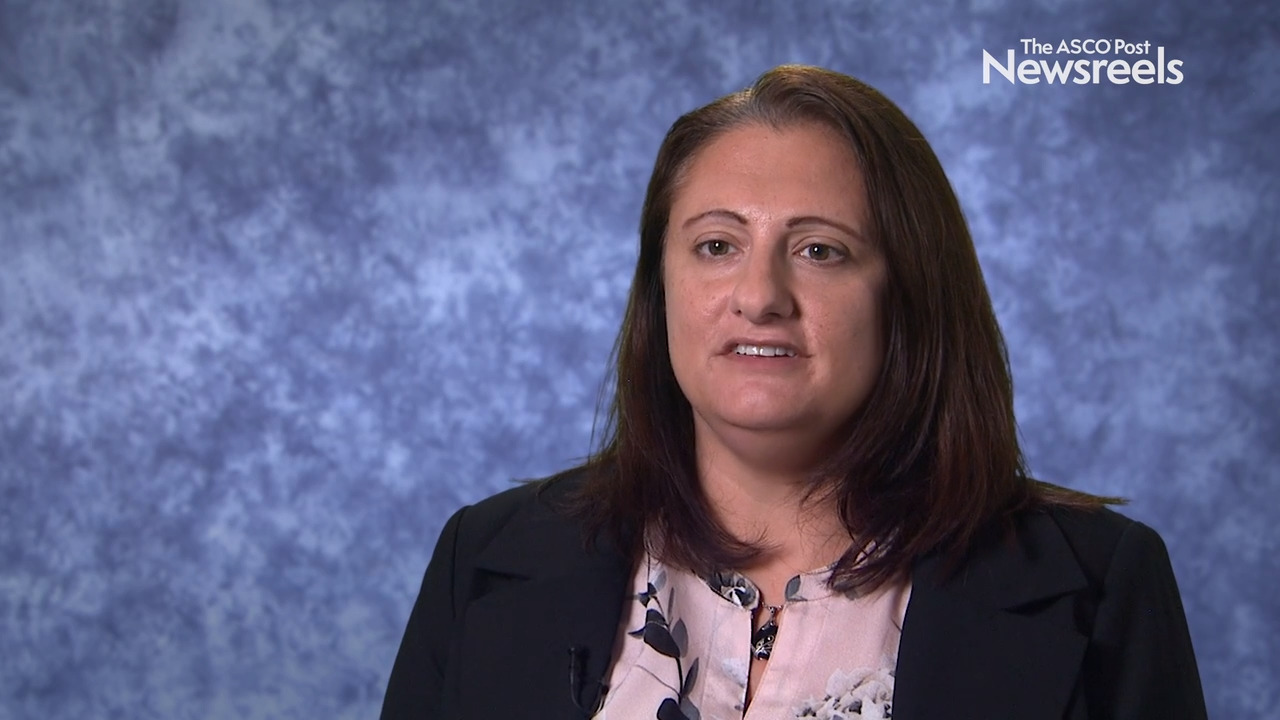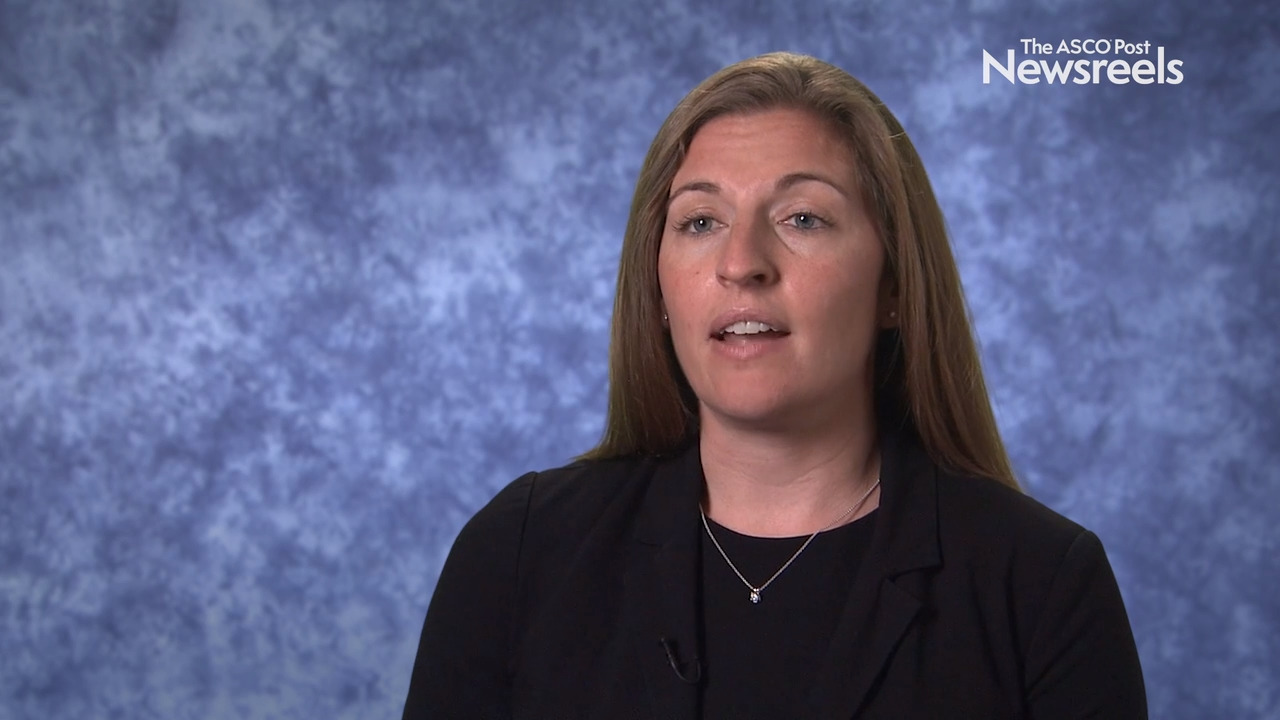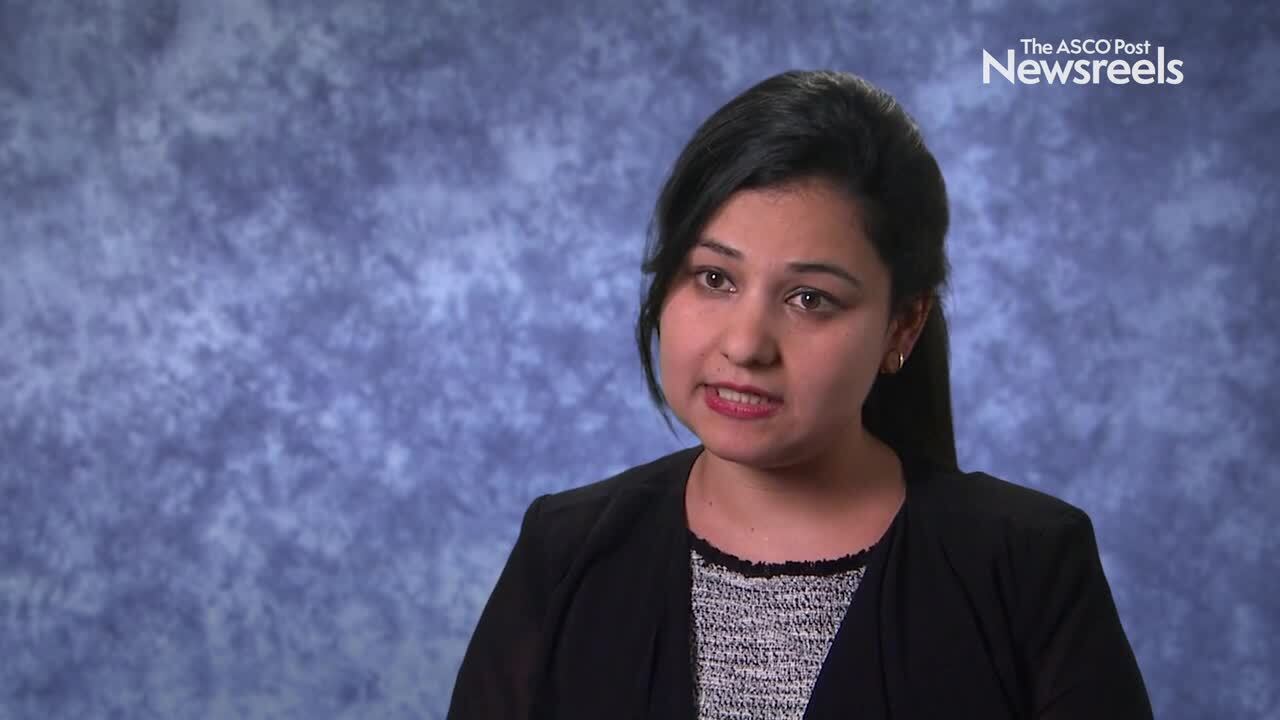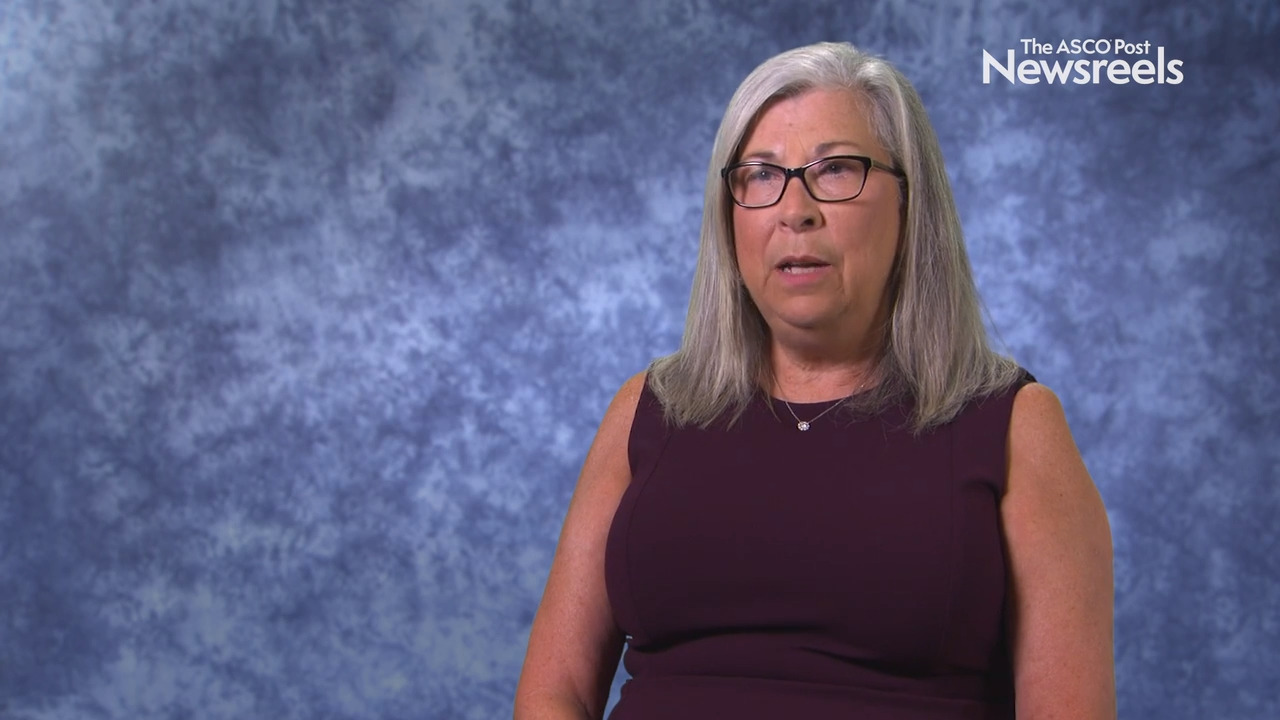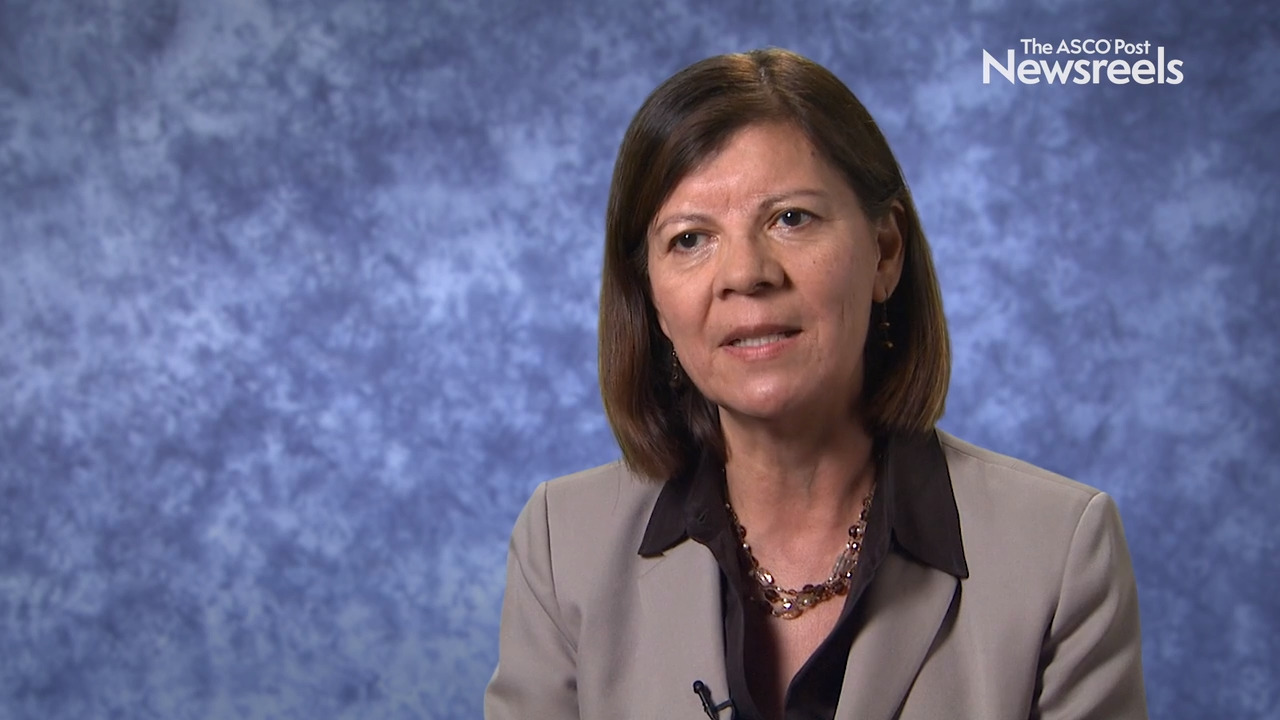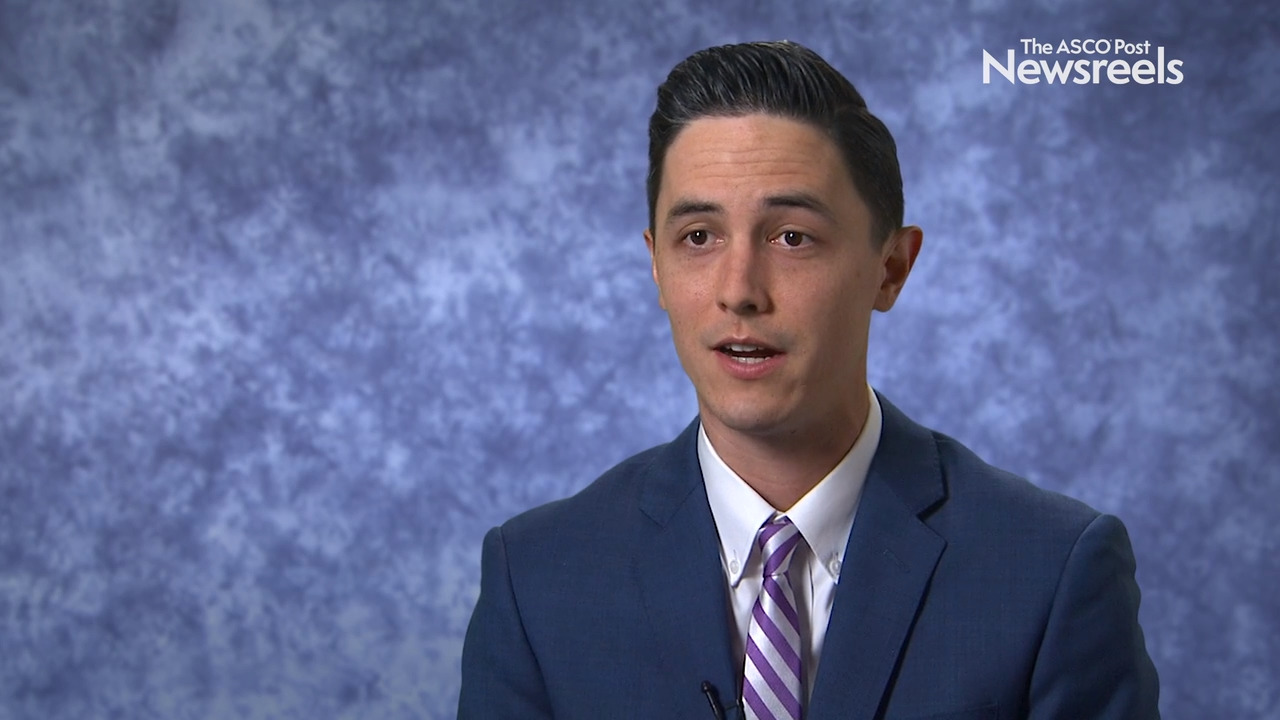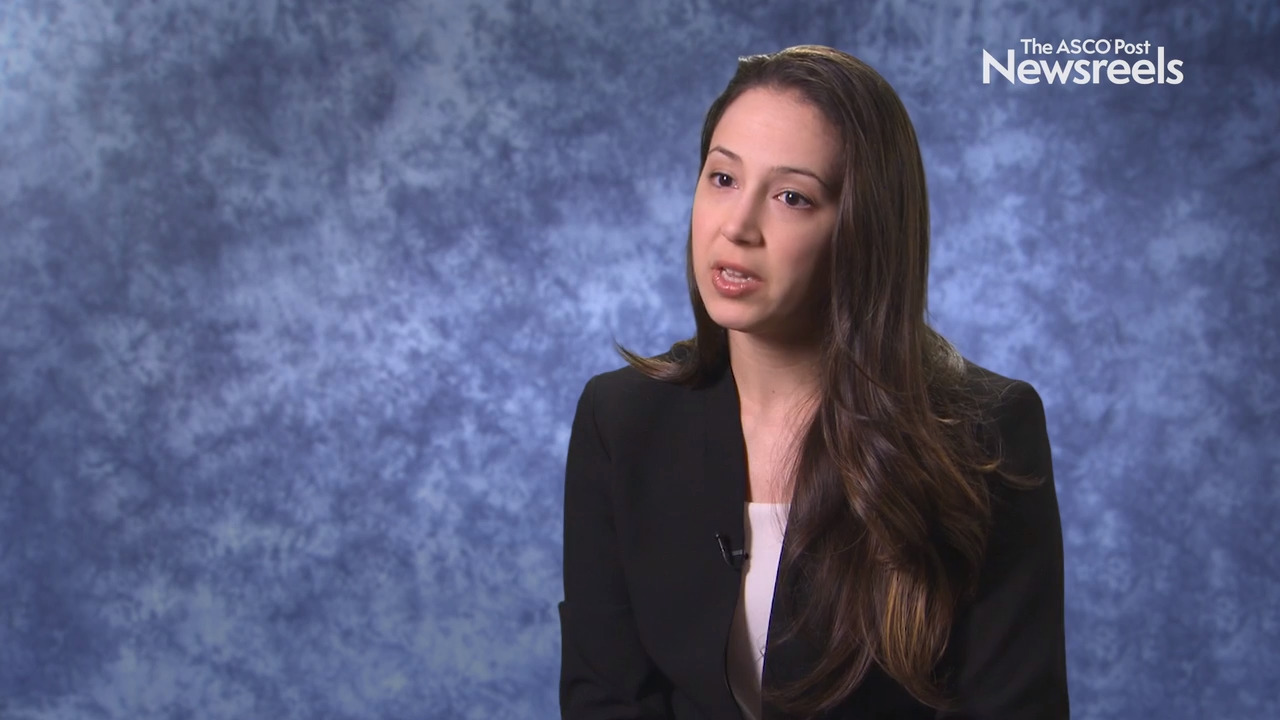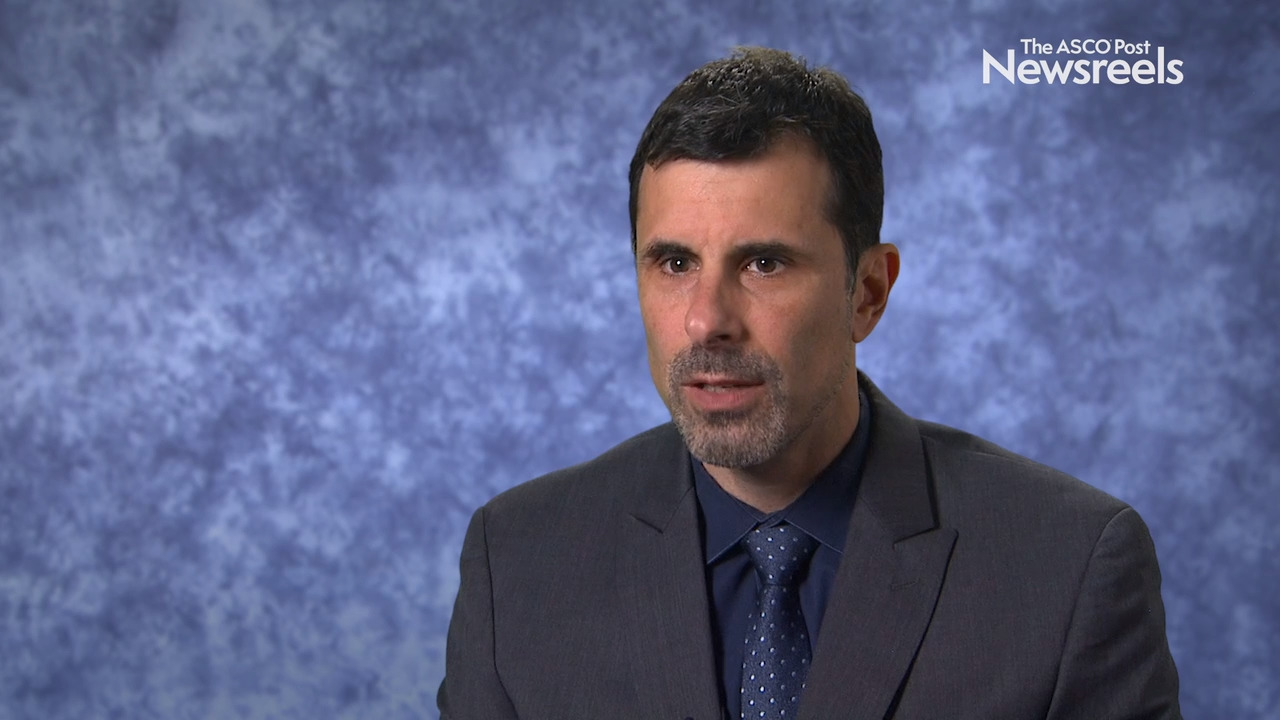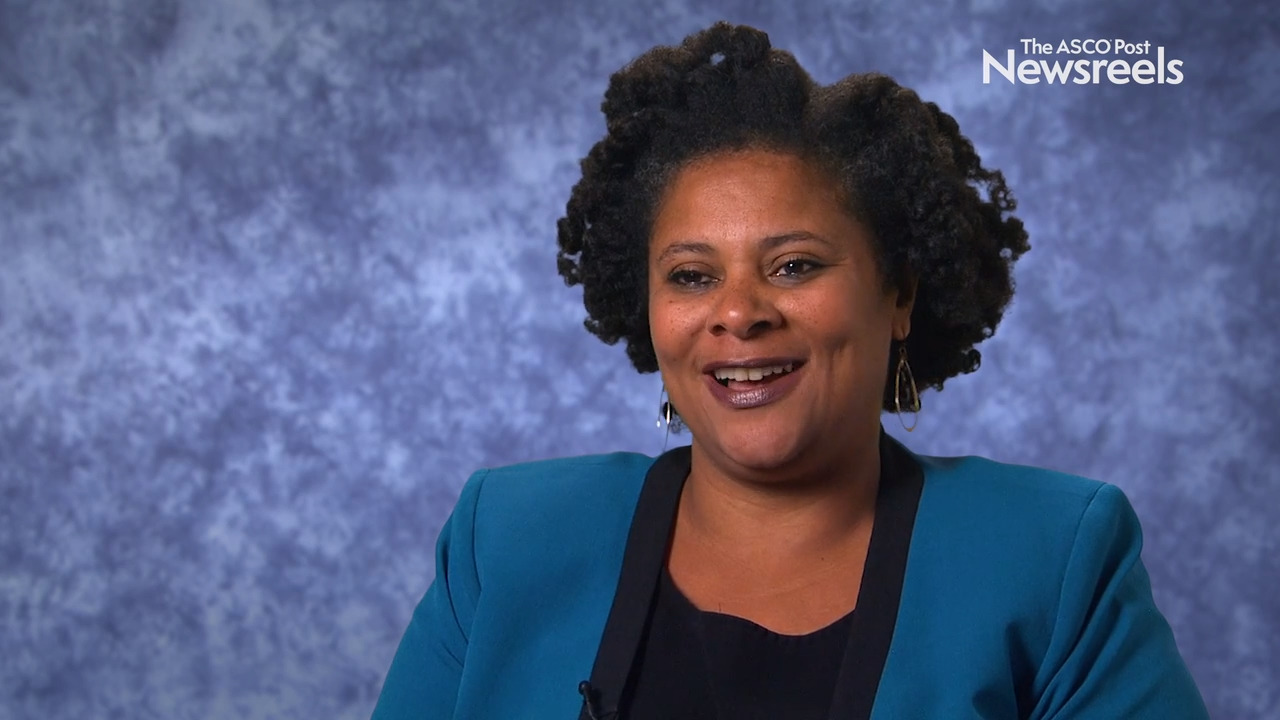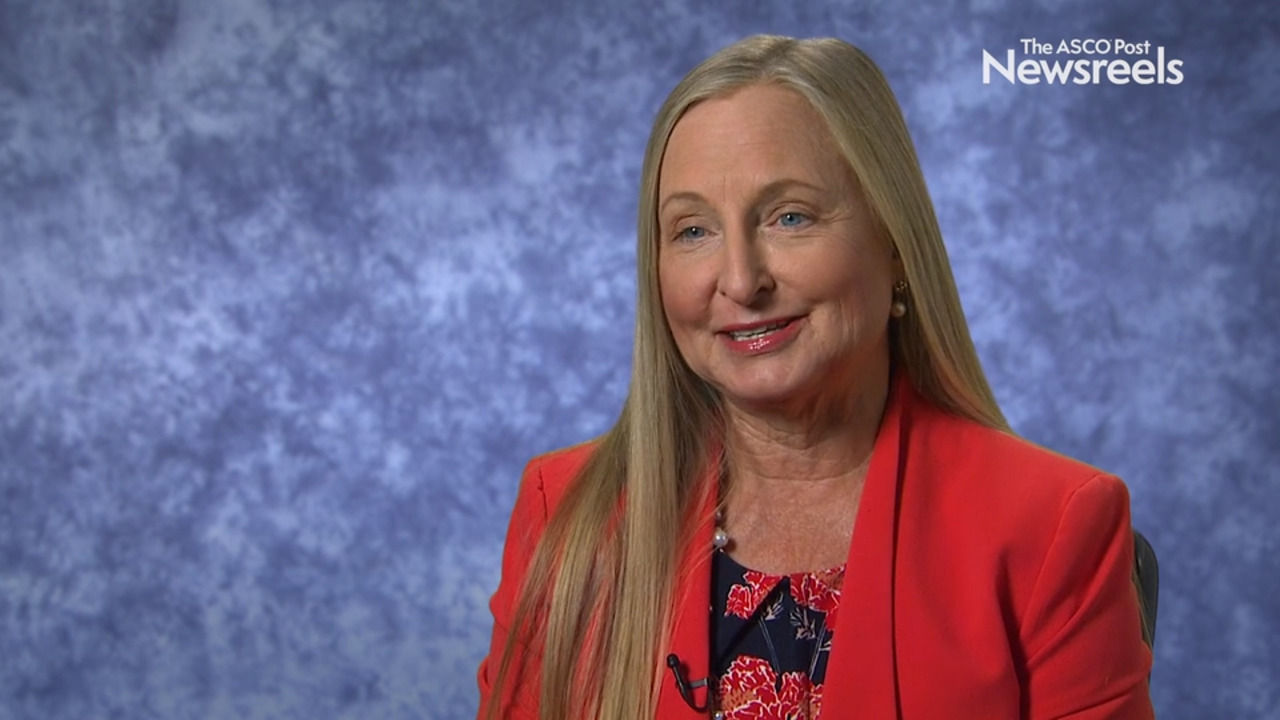2019 Quality Care Symposium
Machine-Learning Model May Predict Unplanned Hospitalizations After Radiation Therapy for Gastrointestinal Cancer
Unplanned hospitalizations may be common among patients with cancer, but they diminish quality of care while racking up high costs for patients and the health-care system alike. According to data pres...
Out-of-Pocket Costs for Oral Tyrosine Kinase Inhibitors and Survival in Advanced Lung Cancer
Tyrosine kinase inhibitors have changed the paradigm of care for advanced EGFR- and ALK-positive non–small cell lung cancer (NSCLC), but not all patients taking these drugs may receive the same benefi...
Expert Point of View: Paul B. Jacobsen, PhD, FASCO
Paul B. Jacobsen, PhD, FASCO, Associate Director of the National Cancer Institute’s Division of Cancer Control and Population Science’s Healthcare Delivery Research Program, said that this study exemp...
Community Health Workers May Improve Value of End-of-Life Cancer Care
The results of simple interventions involving community health workers suggest that improvements in value-based cancer care need not come from health-care professionals. According to data presented at...
Suboptimal Insurance Linked to Worse Survival Outcomes in Positive Clinical Trials
Findings from a recent SWOG study could cast doubt on the generalizability of treatment effects observed in positive clinical trials, especially among underinsured patients. According to data presente...
Michael Kenneth Keng, MD, on an ASCO Quality Training Program: 5-Year Review
Michael Kenneth Keng, MD, of the University of Virginia, gives a status update on this international program, and discusses future initiatives which include coaching mentorship and publishing articles...
Manali I. Patel, MD, on Community Practices: Enhancing Delivery of Value-Based Cancer Care
Manali I. Patel, MD, of Stanford Cancer Center, discusses enhancing value for patients with cancer treated by community practitioners at the end of life by also utilizing trained lay health workers in...
Cary P. Gross, MD, on Creating and Implementing Clinical Pathways: Where is the Patient’s Voice?
Cary P. Gross, MD, of Yale School of Medicine, discusses the challenges of implementing pathways and guiding patient decision-making on treatment.
Joseph O. Jacobson, MD, on Suffering, Systems, and Safety: The Joseph V. Simone Award Lecture
Joseph O. Jacobson, MD, of Dana-Farber Cancer Institute, and this year’s recipient of the award for excellence in quality cancer care, discusses the need for quality improvement (QI) to encompass syst...
Nadine Housri, MD, on Online Tumor Boards: A New Resource for Practicing Oncologists
Nadine Housri, MD, of the Yale School of Medicine, talks about a new paradigm in sharing knowledge from tumor board discussions at NCI-designated comprehensive cancer centers, with community oncologis...
Matthew B. Schabath, PhD, on Addressing Cultural Barriers to Equality in Oncology Among Sexual and Gender Minorities
Matthew B. Schabath, PhD, of H. Lee Moffitt Cancer Center and Research Institute, discusses the disparities in cancer care among members of the LGBTQ community and the need to collect more data in ord...
Angela M. Stover, PhD, on Patient-Reported Outcome Performance Measures for Oncology Practice
Angela M. Stover, PhD, of the University of North Carolina at Chapel Hill, discusses ASCO’s initiative to develop patient-based performance measures for assessing and managing symptoms. The measures h...
Lauren M. Hamel, PhD, on Race and Doctor-Patient Behavior
Lauren M. Hamel, PhD, of Wayne State University/Karmanos Cancer Institute, discusses her findings on the ways in which nonverbal behavior between doctors and patients of the same or different races ca...
Mallika Sharma, MPH, on Eliminating Prior Authorizations, Anxiety, Delay in Care, Higher Costs
Mallika Sharma, MPH, of Seattle Cancer Care Alliance, discusses her findings that, by doing away with the many prior authorization denials based on administrative errors, providers may offer higher-va...
Grace C. Hillyer, EdD, MPH, on Enrolling Patients in Clinical Trials: Improving Clinician-Patient Communication
Grace C. Hillyer, EdD, MPH, of Columbia University Mailman School of Public Health, discusses the many barriers to enrolling patients in clinical trials, most notably different attitudes toward and pe...
Elena Martinez, PhD, MPH, on Diversity in Precision Oncology
Elena Martinez, PhD, MPH, of Moores Cancer Center at the University of California, San Diego, discusses the challenges of ensuring diversity in precision oncology and potential solutions to address th...
Ryan Huey, MD, on the Financial Toxicity of Early-Phase Clinical Trials
Ryan Huey, MD, of The University of Texas MD Anderson Cancer Center, discusses his findings that showed the large financial burden on lower-income patients enrolled in phase I trials (Abstract 8).
Cristina Merkhofer, MD, MHS, on NSCLC: Survival Impact of Taking Part in a Clinical Trial
Cristina Merkhofer, MD, MHS, of Fred Hutchinson Cancer Research Center, discusses study results showing that for patients with metastatic non–small cell lung cancer at her institution, enrolling in a ...
Bernardo H.L. Goulart, MD, on Stage IV NSCLC: High Drug Costs May Affect Survival
Bernardo H. L. Goulart, MD, of Seattle Cancer Care Alliance, discusses his findings that high out-of-pocket costs for oral tyrosine kinase inhibitors may lower survival rates, shorten the duration of ...
Karen M. Winkfield, MD, PhD, on Policy and Business Solutions to Address Disparities in Cancer Care
Karen M. Winkfield, MD, PhD, of the Wake Forest Baptist Medical Center, discusses cultural factors that contribute to cancer care disparities, the role of national policy in addressing inequities in a...
Linda D. Bosserman, MD, on Pathways for Personalized Precision Medicine and Value
Linda D. Bosserman, MD, of City of Hope, discusses guidelines vs pathways, how to personalize pathways, integrated diagnostics, supportive care regimens, and financial guidance for patients with cance...
2019 Quality Care: Intervention to Improve Rates of Resident Advanced Care Planning Documentation
In a single-center study reported at the ASCO Quality Care Symposium and simultaneously published in the Journal of Oncology Practice, Switzer et al found that an intervention consisting of a resident...
2019 Quality Care: Improving Caregiver Identification and Support in a Gynecologic Oncology Practice
In a study reported at the ASCO Quality Care Symposium and simultaneously published in the Journal of Oncology Practice, Campbell et al found that an ASCO Quality Training Program Project—the Plan-Do-...
2019 Quality Care: Socioeconomic Deprivation and Outcomes in Cancer Clinical Trials
In a study to be presented by Unger et al at the 2019 ASCO Quality Care Symposium, researchers found patients living in socioeconomically deprived areas were more likely to experience worse survival i...
2019 Quality Care: End-of-Life Care in Western Washington State vs Alberta, Canada
In a study to be presented by Khaki et al at the 2019 ASCO Quality Care Symposium, researchers found more aggressive end-of-life measures—including use of chemotherapy and admissions to the intensive ...
2019 Quality Care: Cost of Treatment, Prior Authorization of Treatment Plans May Cause Barriers to Care
Drug costs and requirements for prior authorization of treatment plans pose barriers to cancer treatment and can potentially affect outcomes for many patients, according to two studies that will be pr...
2019 Quality Care: Clinical Trial Enrollment May Be Associated With Reduced Mortality in Patients With Metastatic Lung Cancer
Researchers from the University of Washington and Fred Hutchinson Cancer Research Center in Seattle investigated the relationship between participation in a clinical trial and overall survival in pati...
